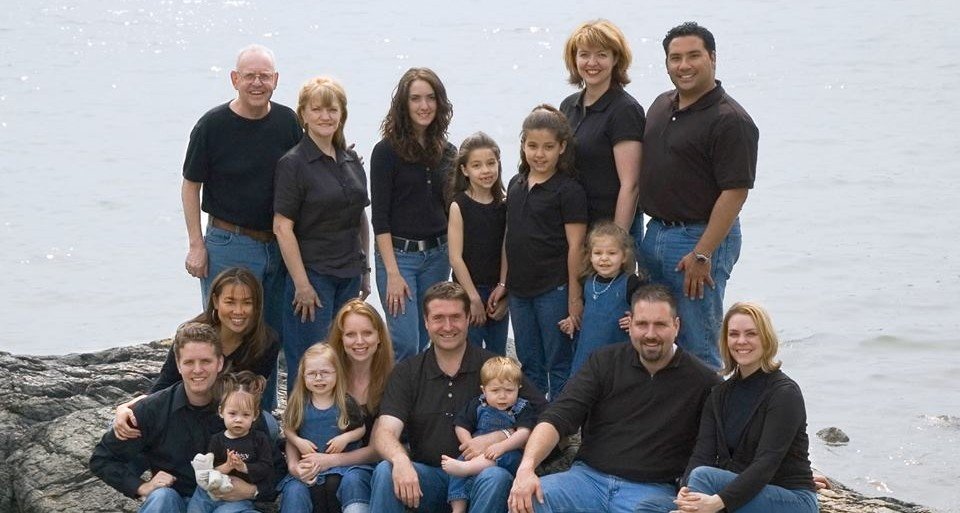Here’s the secret weapon of the 2024 Delaware Trust Act: its Beneficiary Well-Being Trust concepts aren’t confined to Delaware. While the legislation was born in the First State—long a leader in trust innovation—its principles are a blueprint that advisors and attorneys can wield anywhere. This isn’t a Delaware-only perk; it’s a universal opportunity, and that’s a game-changer for professionals serving clients from coast to coast.
The beauty of these provisions lies in their broad application. They’re not tethered to Delaware’s legal framework alone—they can be woven into living trusts, multigenerational planning tools, and nearly any trust structure, no matter the state. Whether you’re working with the "millionaire next door" who’s built a modest fortune or an ultra-high-net-worth (UHNW) family managing a sprawling empire, these concepts scale
effortlessly. The focus on beneficiary preparation—through wealth management
training, mental health support, or family legacy education—transcends jurisdiction and
wealth brackets. It’s about meeting families where they are, wherever they are.
Take a practical example: a living trust.
Imagine a client worried about their any of their heirs—kids or grandkids who might inherit millions but lack the skills or stability to handle it. By adding Beneficiary Well-Being Trust provisions as an additional share that stays in trust, you can ensure those beneficiaries get ongoing support. Picture it: a trust that funds financial literacy courses, therapy to navigate the pressures of wealth, or workshops on the family’s history and values. This isn’t just a Delaware trust tweak—it’s a strategy you can deploy in California, Texas, or Maine, tailored to the client’s needs and local law.
The implication is clear: planning professionals from multiple disciplines nationwide can adopt these principles, regardless of jurisdiction. You don’t need a Delaware trust to tap into this shift from distribution to enhancement. It’s a mindset, backed by a flexible framework, that lets you address your clients’ deepest concerns—preparing their heirs for wealth, not just passing it on. The 2024 Act may have Delaware’s name on it, but its potential belongs to every advisor ready to rethink how trusts can work. The question is: will you bring this to your clients?
Client Needs and the Opportunity for Advisors
Clients don’t just want to hand over their wealth—they want it to matter. Beneath the spreadsheets and tax strategies, their concerns are strikingly human: “I don’t want to raise trust fund kids.” “I don’t want my children to lose their drive.” “I want my family to stay happy and united for generations.” These aren’t hypotheticals—they’re the real voices of families who’ve built something worth preserving. Advisors and professionals who listen closely hear variations on a theme: “I don’t want my kids to blow it,” or “I’m worried about my grandchildren, even if my kids seem fine.” These fears point to a universal desire: preparing heirs to handle inheritance, not just receive it.
The stakes are high, and the data backs it up. Renowned estate planning expert Jay Hughes studied family wealth dynamics and found a startling truth: by the third generation (G3), 90% of a family’s financial capital sits in trusts. Yet when he asked 200 families, “Can your family ‘live’ your plan?”—meaning, does it sustain them beyond dollars—only one said yes. That’s a 99.5% failure rate in aligning wealth with well-being. Families aren’t just transferring assets; they are entrusting advisors with their legacy. And too often, the plans fall short not because of bad investments, but because they don’t prepare beneficiaries for what’s coming.
Enter the Beneficiary Well-Being Trust provisions—a win/win/win opportunity. For clients, it’s peace of mind: their heirs won’t just inherit money, but the tools to manage it, from wealth education to mental health support. For beneficiaries, it’s a lifeline: skills to navigate wealth, preserve their drive, and honor their family’s story. And for advisors? It’s a golden ticket to deeper relationships and new revenue streams. By offering or collaborating on these services—think workshops, counseling, or governance training—you become indispensable, not just for one transaction, but for generations. This isn’t a one-off engagement; it’s a partnership that grows with the family.
Want to test the waters? Ask your clients this simple question: “Are you confident your heirs are prepared to protect, manage, and grow the inheritance they’ll receive?” The answers—ranging from “No” to “Oh, hell no!” to “I don’t think it’s possible”—will reveal the gap you can fill. Clients want to be heard, understood, and shown how their wealth can help, not hurt, their loved ones. The 2024 Delaware Trust Act hands you the framework; now it’s up to you to turn their fears into your opportunity. How many of your clients are waiting for this conversation?
Why Training with the Heritage Institute Matters
The 2024 Delaware Trust Act has opened a door, but walking through it requires more than good intentions—it demands expertise. That’s where the Heritage Institute’s training, titled Elevating Beneficiary Well-Being: Moving From ‘Distribution Focused’ to ‘Enhancement Focused’ Planning and Giving Your Clients What They Want, comes in. This isn’t just a seminar; it’s a roadmap for professionals from various disciplines who are ready to turn a legal shift into a business advantage. If you want to lead in this new era of trust planning, this training is your starting line.
What’s in it for you? First, you’ll learn the questions to ask to determine whether this is appropriate for your individual clients. Then, you’ll master the nuts and bolts of implementing Beneficiary Well-Being Trust provisions—including how to weave them into new or existing trusts, whether in Delaware or beyond. You’ll gain insights on how to coordinate the offering of a range of vital client services from a team of advisors that you lead, including wealth management training, counseling, and family governance education—services now explicitly authorized by the Act. Imagine guiding a client’s heirs through a financial literacy course or connecting them with a governance expert to unify a sprawling family tree. This training equips you to do that and more, positioning you as a trusted expert not just for clients, but also for allied professionals seeking to fulfill their expanded duties.
The business case is just as compelling. By addressing clients’ deepest concerns—preparing their heirs, and preserving harmony—you deepen relationships that last generations. Better yet, you unlock new revenue streams. Collaborate with trustees to deliver these services, or offer them directly—either way, you’re adding value that clients will pay for. This isn’t about replacing your current practice; it’s about enhancing it, turning one-time estate plans into ongoing engagements. The Heritage Institute doesn’t just teach you the what of the Act—it shows you the how of making it profitable.
So, here’s the call to action: don’t let this opportunity sit on the shelf. The Heritage Institute’s training is your chance to master these strategies, differentiate your practice, and deliver what clients crave—plans that elevate their beneficiaries, not just their balance sheets. Sign up, dig in, and step into the future of estate planning. Your clients are ready—are you?
Seizing the Future of Estate Planning
The 2024 Delaware Trust Act isn’t just a piece of legislation—it’s a turning point. With its Beneficiary Well-Being Trust provisions, it shifts estate planning from a narrow focus on wealth distribution to a broader mission of enhancement, preparing beneficiaries to thrive. This isn’t a Delaware exclusive; its principles apply to trusts nationwide, from living trusts in Texas to multigenerational plans in New York. Best of all, it aligns perfectly with what clients want: heirs who are ready, not just rich; legacies that endure, not just assets that transfer. It’s a law that listens to families—and hands advisors the tools to answer.
Now’s the time to act. This shift is your chance to stand out in a crowded field, to move beyond tax tables and into the heart of what clients care about. The advisors who embrace this opportunity won’t just keep pace with evolving needs— they’ll define the future of their practice. The 2024 Act offers a framework; your expertise brings it to life. Don’t let it pass you by.
The Heritage Institute’s training is your key to unlocking this potential. With Elevating Beneficiary Well-Being, trustees will learn the benefits and dynamics of these new provisions, and client advisors will learn how to implement these trusts, serve their clients, and grow their businesses—all while meeting the demands of a new era. It’s an invitation to transform your practice and deliver results that resonate for generations. Sign up and turn a legal milestone into your competitive edge.
The future of estate planning is here—rooted in the past, reimagined for today, and ready for tomorrow. It’s about more than wealth; it’s about well-being. Will you be ready to lead it?
Join the waitlist for Upcoming webinars: WAITLIST*
________________
Rod Zeeb is the CEO & Founder of The Heritage Institute and Founder and Principal in Genacy Group.
Lori Coonen is CLO at The Heritage Institute and a Principal in Genacy Group. You may contact them at www.theheritageinstitute.com or www.genacygroup.com.

















